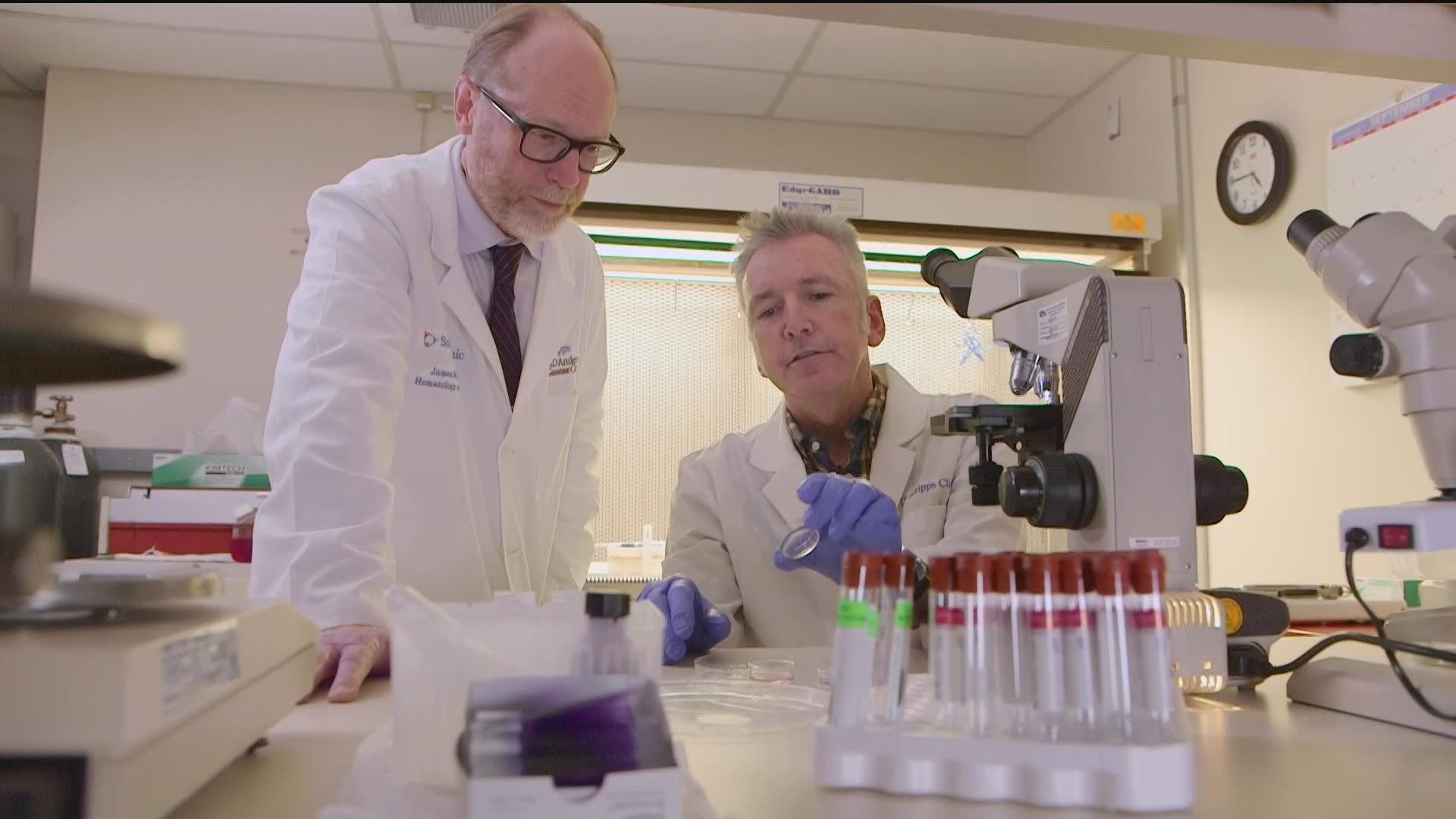SAN DIEGO — In an effort to improve early diagnosis for people who are at increased risk for developing lung cancer, Scripps MD Anderson Cancer Center has launched a comprehensive, multidisciplinary lung cancer screening program for residents across San Diego County.
The new program is open to people who meet current guidelines for annual lung cancer screening. The United States Preventive Services Task Force (USPSTF) recently broadened its guidance to include adults starting at age 50 who have a 20 pack-year smoking history and either currently smoke or have quit in the past 15 years. A 20 pack-year smoking history equals smoking an average of one pack of cigarettes per day for 20 years.
The program addresses a significant unmet need to get more people screened with low-dose CT scans. Less than 10% of patients who were eligible for lung cancer screening under the previous USPSTF guidelines were screened in the United States in 2018.
“While early detection in lung cancer is critical, currently only about 20% of patients are diagnosed at an early stage, when treatments can be most effective,” said Thomas Buchholz, M.D., medical director of Scripps MD Anderson Cancer Center and a Scripps Clinic physician. “But with screenings, this percentage can significantly increase. Lung cancer is by far the leading cause of cancer-related deaths nationally, so having a comprehensive program like ours staffed by a multidisciplinary team of specialists to detect it early can be a real game changer.”
According to the American Cancer Society (ACS), the five-year survival rate for the most common form of lung cancer (non-small cell lung cancer) is significantly higher when diagnosed at an early, localized stage, as opposed to a later, distant stage.
According to Scripps, the Jana Oliphant Hackett Lung Cancer Screening Program is made possible through $2 million in lead philanthropic gifts -- $1 million from Don and Judy Oliphant of Rancho Santa Fe, and $1 million from Terry Hackett of Orange County. The program is named to honor the legacy of Jana Oliphant Hackett (Terry’s wife and Don’s sister), who passed away from lung cancer in 2021. She was a lifelong athlete who had never smoked and was diagnosed with advanced disease. Her family hopes the new program will spare others from facing a similar ordeal.
While it’s important to screen people who have a significant smoking history, lung cancer can also develop in nonsmokers. About 20% of lung cancer deaths occur in people who have never smoked, according to the ACS. Lung cancer in nonsmokers occurs more frequently in women and tends to develop at an earlier age than lung cancer in smokers, according to the National Cancer Institute. The UPSTF does not recommend lung cancer screening for people who have never smoked, but physicians and patients should be aware of symptoms that could lead them to consider a diagnostic exam.
The new lung cancer screening program at Scripps MD Anderson includes a comprehensive array of services, such as tobacco cessation education and coaching, as well as a shared decision-making visit to discuss risks and benefits of imaging and to establish a regular screening schedule. It also includes a patient registry database to ensure patients are referred to annual screenings as indicated, and a nodule management database for ongoing monitoring and analysis.
“We’re collaborating very closely with our primary care physicians to raise awareness about this program so we can improve patients’ access to this potentially life-saving screening,” said Samir Makani, M.D., the screening program’s medical director and an interventional pulmonologist with Scripps MD Anderson. “And it’s essential to have a comprehensive approach like ours, so patients get not only their first screening, but are followed so they stay current and get it every year.”
Serving as the screening program’s associate medical director is Nikunj Patel, M.D., a Scripps MD Anderson radiologist and a Scripps Clinic physician. The program’s dedicated nurse practitioner is Andrea De Benedictis.
For the convenience of screening program participants, low-dose CT scans will be available at multiple locations across San Diego County. Individuals should partner with their primary care physician to discuss details about the screening program, including specific eligibility guidelines, and to arrange a referral to the program, if appropriate.
Screening program participants who are diagnosed with an abnormality will have access to a multidisciplinary team of Scripps MD Anderson specialists, such as radiologists, pulmonologists and thoracic surgeons, who will be involved in all aspects of care.
WATCH RELATED: New cancer center from Scripps Health opening in San Diego County

